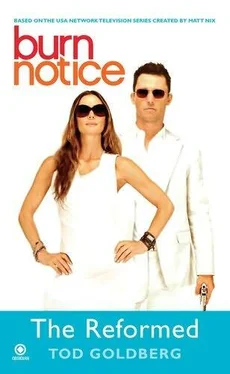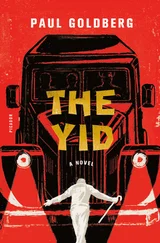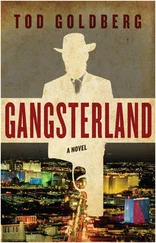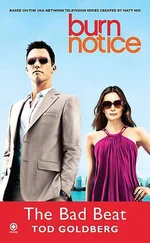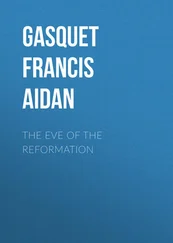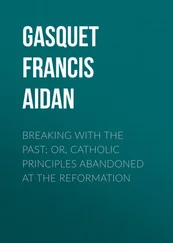Tod Goldberg - The Reformed
Здесь есть возможность читать онлайн «Tod Goldberg - The Reformed» весь текст электронной книги совершенно бесплатно (целиком полную версию без сокращений). В некоторых случаях можно слушать аудио, скачать через торрент в формате fb2 и присутствует краткое содержание. Жанр: Боевик, на английском языке. Описание произведения, (предисловие) а так же отзывы посетителей доступны на портале библиотеки ЛибКат.
- Название:The Reformed
- Автор:
- Жанр:
- Год:неизвестен
- ISBN:нет данных
- Рейтинг книги:4 / 5. Голосов: 1
-
Избранное:Добавить в избранное
- Отзывы:
-
Ваша оценка:
- 80
- 1
- 2
- 3
- 4
- 5
The Reformed: краткое содержание, описание и аннотация
Предлагаем к чтению аннотацию, описание, краткое содержание или предисловие (зависит от того, что написал сам автор книги «The Reformed»). Если вы не нашли необходимую информацию о книге — напишите в комментариях, мы постараемся отыскать её.
The Reformed — читать онлайн бесплатно полную книгу (весь текст) целиком
Ниже представлен текст книги, разбитый по страницам. Система сохранения места последней прочитанной страницы, позволяет с удобством читать онлайн бесплатно книгу «The Reformed», без необходимости каждый раз заново искать на чём Вы остановились. Поставьте закладку, и сможете в любой момент перейти на страницу, на которой закончили чтение.
Интервал:
Закладка:
“So I wait until I see the man leave and I go and just slide my card in, so it registers. You see? But then the door is open and curiosity, you see, it gets the better of me.”
“Killed the cat,” Sam said, which was entirely the wrong thing to say at that moment.
“I know. I know. I know,” Pablo said. “I find guns. Many, many guns. And much money. Much money. But it isn’t real. The money, that is. I find this out the wrong way.”
“Please, tell me you did not steal counterfeit money and then use it to pay your water bill or something,” I said. Pablo’s eyes got wider, if that was possible. He wiped his face with his sleeve, but he didn’t say anything. Whatever he did with the money, it was the wrong thing to do. “How much did you take?” I asked.
“One thousand,” he said. “I bought a round of drinks at the bar here and paid with a fifty that was apparently not such a good copy. So, so, I try to take the money back, but by that time, I’d already spent maybe five hundred, so I cannot afford to pay back another real five hundred.”
“When was the last time you went into the room?” I asked.
“Three days. I slide my card, but I do not go in. But the men who come and go, they do not look like the kind of people I’d like to anger.”
“And what do we look like?” Sam said.
Pablo stammered for a moment, but then Fiona applied a slight bit of pressure to his wrist, which seemed to focus his attention. “I figure you are good guys, or else why would you want to know what’s happening?”
I handed Pablo back my sunglasses. He needed them more than I did. “Fiona,” I said, “give him your earrings.”
“What?”
“Your earrings,” I said.
“They’re diamond,” she said.
“Did you buy them?”
“They were a gift,” she said.
“From who?”
“From a gentleman who didn’t have quite enough money for a fair-priced assault rifle.”
“Consider it karmic reparations,” I said.
Fiona took off her two rather large diamond studs and handed them to Pablo, who didn’t quite know what to do with them, mostly because Fiona was making noises in her throat like a cornered tiger. It can be slightly disconcerting to those who don’t know Fiona’s noises.
“What am I to do?” Pablo said.
“Go home sick,” I said.
“For how long?” he asked.
“Forever,” I said.
Pablo looked down at the diamond earrings in his hand and then back at Fiona. He plucked up one of the earrings and tried to hand it back to Fiona. “Maybe one is enough?”
“They’re a matched set,” Fiona said.
“Go,” I said to Pablo, “before I change my mind.”
Pablo deposited the earrings in his pocket and then scurried out of sight in what must have been record time.
“Guess it’s true,” Sam said once Pablo was gone, “that you can’t trust the help at hotels not to go through your shit.”
I handed the key card to Fiona. “Why don’t you see if you can accidentally open the door to the wrong villa,” I said.
“And get shot?” she said.
“No one shoots a pretty girl in a bikini,” Sam said. “And besides, with all that oil on you, a bullet would slide right off you.”
“Or I’ll instantly ignite,” she said.
I had a better idea. I called the front desk and asked to be connected to the villa. I hung up after five rings. “There’s no one there,” I said.
“Would you feel better if Uncle Sam was standing next to you with his big, mean gun, Fiona?” Sam said.
Fiona gave both of us one of her patented “I could live a better life without both of you” glares and stomped off toward the villa. Sam and I followed behind her at a slight distance, and then lingered out of sight in the nuclear-treated fountain grass as she approached the door. Though Fiona didn’t have a gun on her-hard to hide a gun in a bikini-I was certain she could handle herself in the face of danger. Plus, Sam was right: No one shoots a pretty girl in a bikini. It just goes against nature.
Fiona slipped the key card in just as anyone might when they’re returning to their villa-which is to say, she portrayed no nerves in the least-and opened the door. I listened for screams or gunshots or even a muffled yelp, but heard nothing. The door closed behind her with an audible click.
A few seconds later, my cell phone rang.
“Darling,” Fiona said when I answered, “why don’t you come back to the room? I’m lonely.”
“I’ll even bring a friend,” I said.
Sam and I checked for unwelcome visitors and then headed to the villa. Fiona stood in the doorway, sipping a bottle of water.
“Where’d you get the water?” I asked.
“The mini bar,” she said. “Just four dollars.”
We stepped inside, and Fi closed the door and bolted it behind us. The villa was decorated just like the rest of the hotel, which is to say, at some point the designers began thinking of the 1970s as a period worth revisiting. For added kitsch factor, the walls inside the villa were covered with framed, blown-up photos of B-list celebrities-Zsa Zsa Gabor, Barbie Benton, Ricardo Montalban, the guy who played Potsie on Happy Days-partying in Miami during the period.
“Who would pay to stay here?” Sam said. “I had to live in the 1970s. And let me tell you, it was no vacation.”
“Hipsters,” Fiona said, “love to revisit the time period their parents suffered through.”
The living room and small galley kitchen looked lived-in, but not messy. There were cups in the sink, the garbage had take-out containers and coffee grounds in it and the sofa in the living room was dented from people sitting on it. There were no guns and no stacks of money, at least not in the open. The room was well lit by the sun coming in through a sliding glass door, which opened out to a small patio overlooking the canal. I opened the door and stepped outside. On the patio table was an ashtray overflowing with cigarette butts. Two chairs were pulled slightly away from the table, as well, which told me more than one person had been here.
I came back inside in time to see Sam open up the fridge. “Uh, Mikey,” he said.
“You can have a beer when we’re done,” I said.
“I know,” Sam said, “but you’ll want to take a look at this.”
“Please, tell me it’s a human head,” Fiona said.
“No,” Sam said, “just a lot of dead presidents.”
Stacked inside the fridge and the freezer were bundles of bills: twenties, tens, fives and ones and nothing larger.
I pulled out a stack of twenties and examined it. They were pre-1996 bills, which meant they didn’t have the plastic security strip embedded into the fabric of the bill, nor the extra details such as Andrew Jackson’s hidden watermark photo or the shifting color palettes.
I licked my thumb and ran it across the face of the bill. Surprisingly, no color came up. Surprising since these were clearly counterfeit bills, but ones that would easily pass in the circles where they were likely to be passed-in bars and clubs, the streets, maybe even foreign countries-though certainly not in banks. It was doubtful they’d even be accepted in a soda machine.
If you’re going to make your own American currency, the first thing you need to know is that in all likelihood, you’ll get caught. After you get caught, you’ll go to federal prison, and after you’re released from federal prison, you’ll be audited for the rest of your life by the IRS. If you’re still going to make your own American currency, you need to have access to a high-density printer, rag paper and the ability to compress your paper with tons of pressure in order to make it as thin as the common dollar. An automobile wrecker would do the trick.
And then? Then you’ll probably still get caught, because if you’re dumb enough to try counterfeiting currency, you’re probably not smart enough not to spread the money around to people or businesses who might take notice of your fake bills, because even the best fake bill just doesn’t feel like a real bill. Nor does it smell the same. There’s no way to replicate the process an actual bill goes through from the mint to your wallet, nor is there a way to re-create the wear and tear of the bill’s life span-the average fifty dollar bill lives for a decade, a twenty for half that time.
Читать дальшеИнтервал:
Закладка:
Похожие книги на «The Reformed»
Представляем Вашему вниманию похожие книги на «The Reformed» списком для выбора. Мы отобрали схожую по названию и смыслу литературу в надежде предоставить читателям больше вариантов отыскать новые, интересные, ещё непрочитанные произведения.
Обсуждение, отзывы о книге «The Reformed» и просто собственные мнения читателей. Оставьте ваши комментарии, напишите, что Вы думаете о произведении, его смысле или главных героях. Укажите что конкретно понравилось, а что нет, и почему Вы так считаете.
